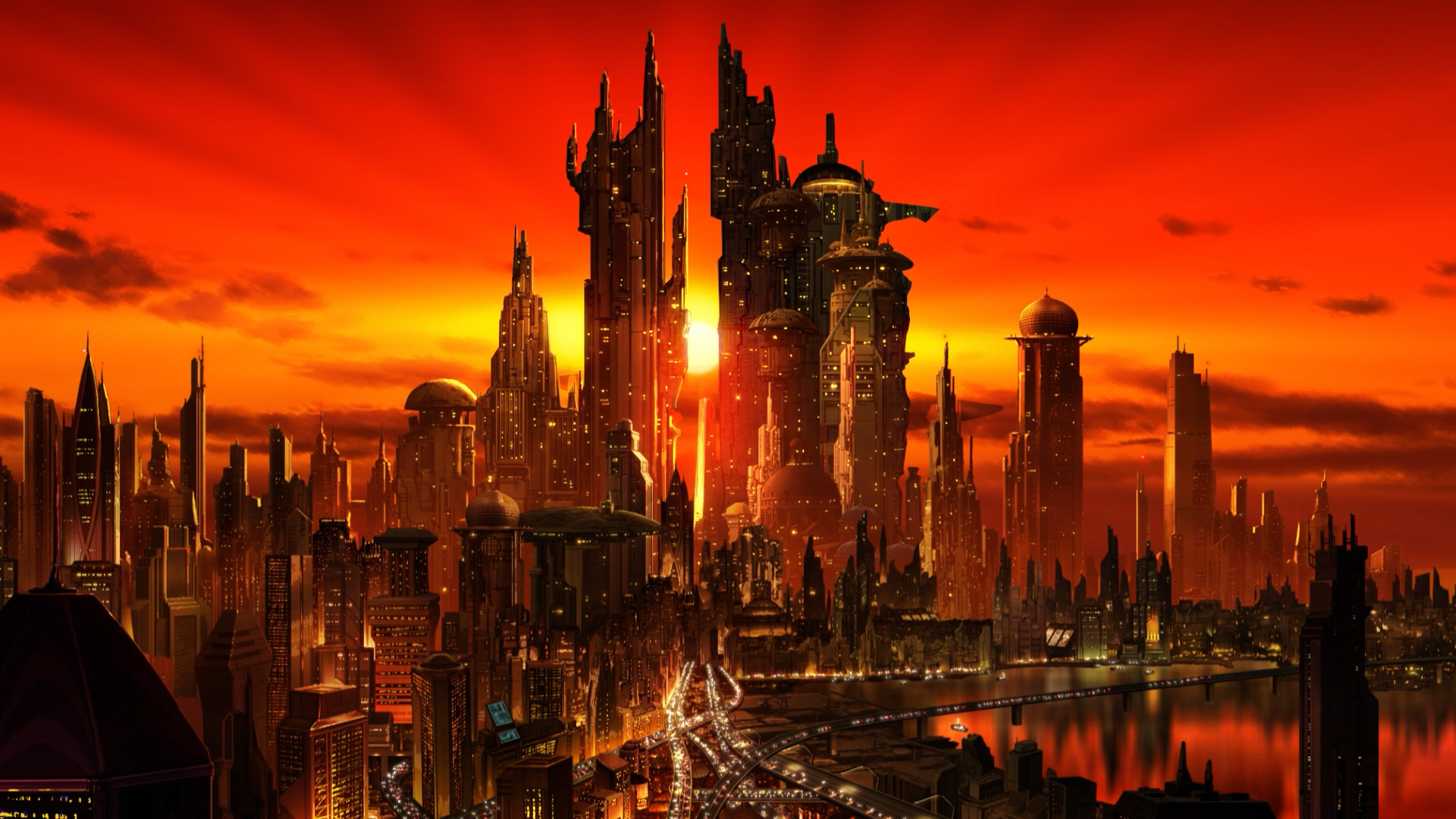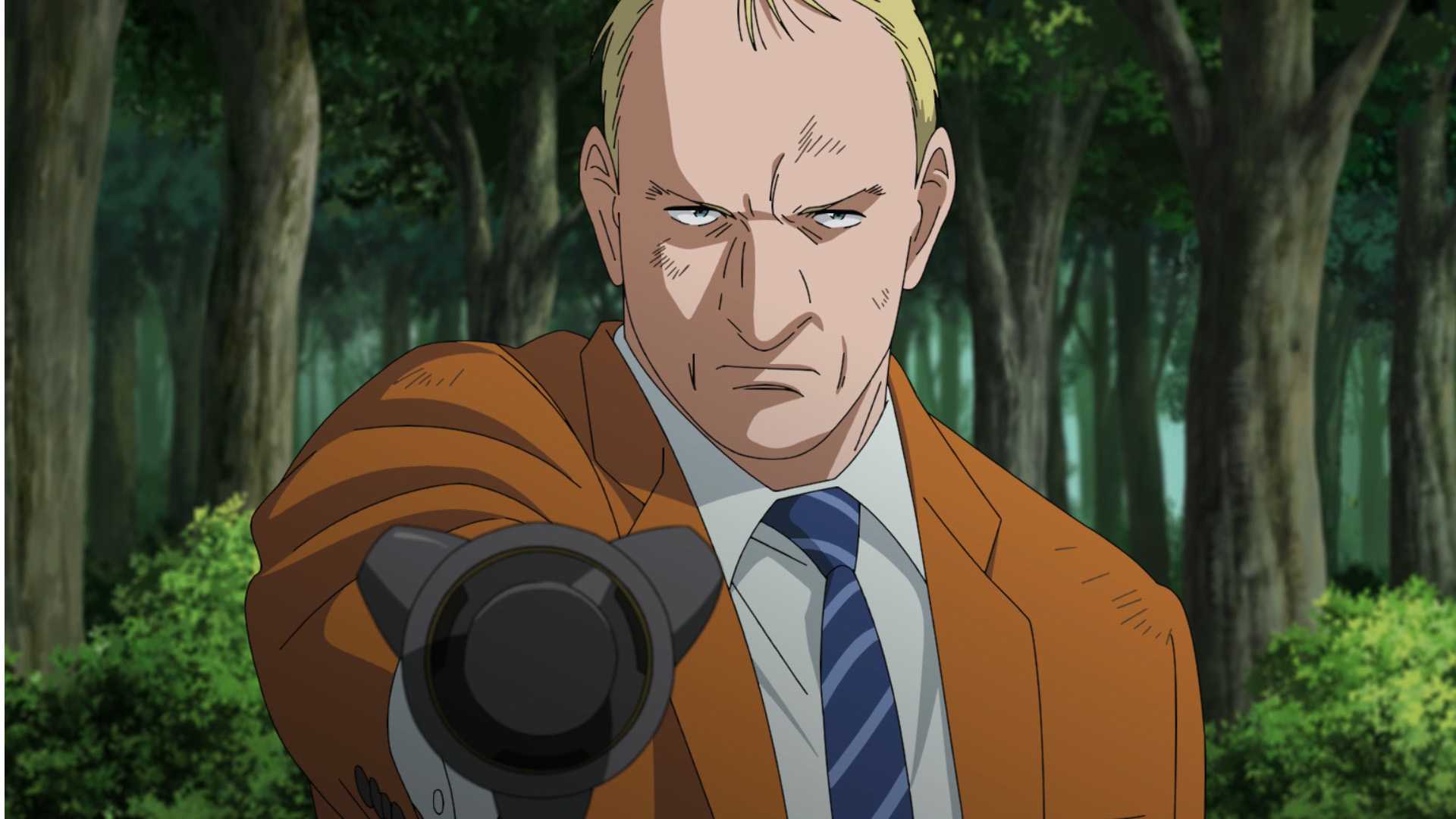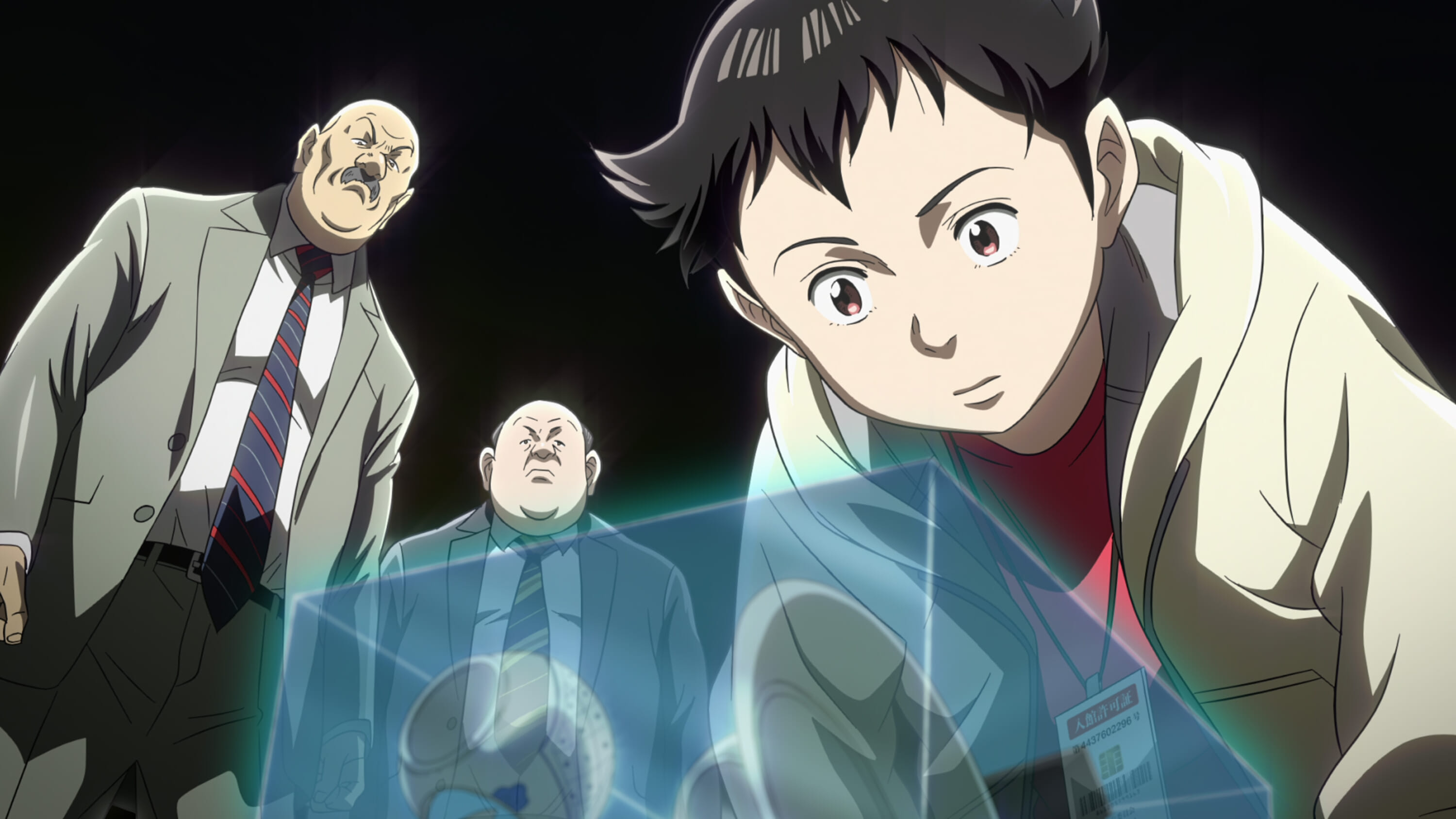In late October, Netflix released the Pluto anime based on a manga of the same name by Naoki Urasawa (Yawara!, Monster, 20th Century Boys). Conceived as a more adult retelling of Astro Boy by Osamu Tezuka, the “God of Manga,” the story takes place in the future where advances in artificial intelligence have made robots more human-like than ever before.
Unfortunately, they’ve also made the killings of more sophisticated robots akin to murder, a string of which puts robot detective Gesicht on the trail of a bloody, geopolitical conspiracy. As he gets to the bottom of the case, though, he also uncovers another interesting thing: a blueprint for how to do a “gritty reboot” right.

Episode 2 | Netflix
Enhancing Darkness Instead of Inventing It From Scratch
Astro Boy, first published in 1952, is a fun sci-fi adventure about the titular android (originally called “Atom” in Japanese) who protects peace by fighting bad guys of both the metal and flesh variety. That description of the comic is technically accurate, but it’s also like saying that Godzilla is a story about a real-estate collapse in Japan. A lot of context is missing from that statement. Astro Boy looks innocent and fun and has plenty of gags in it but, underneath it all, it’s an incredibly dark story.
Astro is created by the genius Dr. Tenma to replace his son who died in a car accident. He eventually disowns his robot-son for reasons that differ between the comic and its many adaptations. In the 1963 animated series, it was because the robot didn’t grow up “like all the other children.” In the 1980s series, it was because his clumsiness embarrassed the doctor. The specific reasons don’t matter. In every version, the real reason for the abandonment is clear: Dr. Tenma is grieving the death of his son and is not processing it in a healthy way. The story was supposedly envisioned as a “21st-century reverse-Pinocchio” but is closer in themes to Frankenstein. That’s what the Pluto anime is working with.
The 2023 Netflix series didn’t just take a children’s story and throw a few buckets of blood on it. Astro Boy already had adult themes in it that couldn’t be fully expressed because of the times. Pluto simply brings them to the surface. In short, it keeps the core of Astro Boy intact. Then, it extrapolates from it, building up from the available data, introducing such themes as robots enlisting to fight wars overseas or psychopaths targeting robots because they are forbidden by their programming to hurt people. Those “gritty” themes only work because they are built on a foundation that was already pretty dark. It probably wouldn’t work as well if you applied the same plot points to, say, The Jetsons.

Gesicht, Episode 5 | Netflix
Coming up With an Original Story
The Pluto anime is based on “The Greatest Robot on Earth” arc of Astro Boy and introduces the same characters, including the robot police officer Gesicht. But it then places them all into new situations. Pluto is a thriller and a murder mystery. The original story was mainly about cool robots fighting in cool ways. Pluto has that too, but the action initially takes a backseat as the soft-spoken Gesicht interviews suspects, gathers clues and tries to solve a case all while dealing with another mystery concerning the strange dreams he’s been having.
Simply remaking “The Greatest Robot on Earth” with oil spraying like blood and a few characters crying in between the robot slaughter would have been the easy way out. Instead, Urasawa makes the story his own, yet still manages to fit into the world of Astro Boy established by Tezuka. And we know that for sure because Pluto was overseen by the great man’s son Makoto Tezuka (romanized as Macoto Tezka).

Episode 2 | Netflix
Showing What Not to Do
Pluto is a beautiful manga and anime full of spectacular sci-fi landscapes, inventive action and a look at a possible future where humans co-exist with both older-model robots that look like vacuum cleaners from the 1950s and cutting-edge lifelike androids. But it has, well, maybe not “faults” but elements that needlessly date it, like how a huge plot point in it is a sci-fi retelling of the Iraq War.
In the world of Pluto, a coalition of countries led by the United States of Thracia (a thinly veiled stand-in for the U.S.) invades Persia because of rumors they were producing “robots of mass destruction.” The country’s king, Darius XIV, also happens to be the spitting image of Saddam Hussein.
That’s not an automatically bad story, yet it makes Pluto less timeless. Astro Boy, on the other hand, is timeless while including its creator’s thoughts about war. In Frederik L. Schodt’s The Astro Boy Essays, an examination of Tezuka through the lens of Astro Boy, it’s argued that the central theme of the comic — the tension arising from humans living alongside robots — came from the mangaka’s experiences in mid- and post-war Japan.
Though those themes made their way into the comic, they were never as straightforward transplants as “robots of mass destruction.” Again, that’s not a mark against the quality of Pluto, but it makes it less likely that the series will be remembered for as long as Astro Boy.









